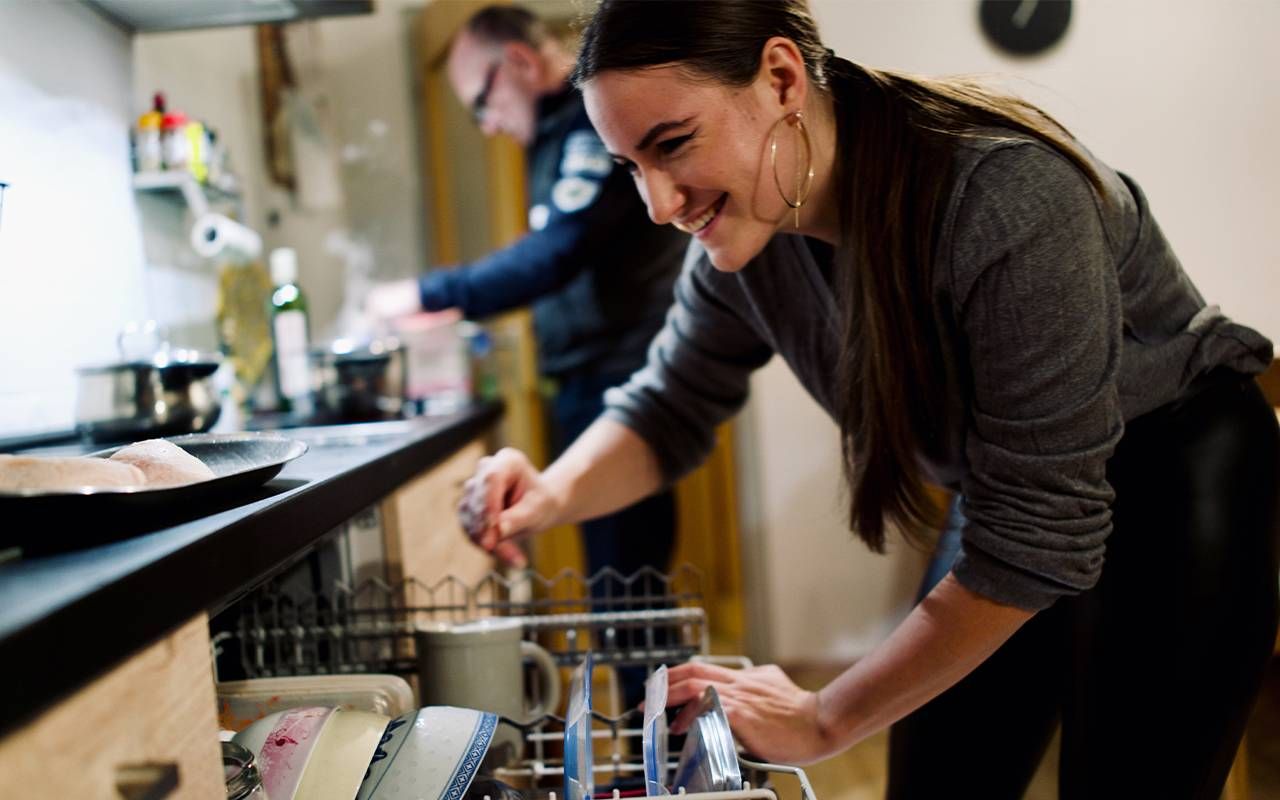Hey Mom! I'm Home
They may have moved back to save money, but Gen Z kids should also be willing to accept some responsibilities around the house
Back in March 2020, my then-22-year-old daughter moved back home. We thought it would be a temporary situation, a few months at most. Her dorms had closed due to the pandemic. Like many adult children, she was back home, finishing her college education in her childhood bedroom instead of her dorm room.

After she graduated in June 2020, she accepted her first job in another state. We thought she would move immediately. Instead, she lived with us for one and a half years. But since she could work remotely, she continued to live with us. It wasn't until July 2021 that she finally moved into her own apartment with two roommates.
Our story is not uncommon. A July 21, 2022 New York Times article addressed this trend, estimating that one-third of Gen Z adults (young adults between 18 and 25) have moved back into their childhood homes. According to the article, a 2020 analysis from Zillow found that about 2.7 million adults in the United States moved in with a parent or grandparent in March and April of that year.
Benefits for Adult Children Living at Home
The biggest benefit of living at home for most young adults is saving money. A study by Credit Karma found that 32% of Gen Z adults spend half of their monthly income on housing (rent/mortgage) and that 28% cannot save any money right now.
The biggest benefit of living at home for most young adults is saving money.
While my daughter was earning a nice salary in her entry-level position, the cost of living in the city where her job was located was high. Given that she worked remotely, she could continue to live at our house and save a substantial portion of her earnings.
Danielle Bender (a pseudonym) thought she would be an empty nester when she and her husband decided to downsize from their Long Island home to a condominium. "Luckily, we did buy a condo with three bedrooms since both of our kids wound up moving back home during the pandemic and have continued to live here," Bender explains. For Bender's daughter, 25, living at home is a way of saving money while she contemplates a possible career change and relocation.
As for her son, having him home is a cost savings to Bender. "After going to school out of state for two years, he decided to finish his degree at a college where he could commute. Living at home means we don't have to pay for additional housing," she says.
Creating a Healthy Living Space
Mark McConville, author of the book, "Failure to Launch", says there is nothing intrinsically bad about adult children living with their parents.
"In many cultures, this is fairly common," explains McConville. "It's not unhealthy for an adult child to live with their parents, and kids shouldn't be ashamed to be in this type of living arrangement."
McConville doesn't believe there are any set rules when it comes to adult children living with their parents. Each situation has its individual circumstances (house size, family finances) that have to be factored into decisions about living space and how costs are handled.
"They mostly take care of themselves. We are four adults living under one roof and we respect each other."
The more universal issue is the question of whether the parents are creating an environment that is supportive or enabling for the adult child.
McConville explains, "Think of the child as a line on a graph. Is that line going up, meaning is the child continuing to mature, grow and work toward adulthood while living at home? If yes, then the parent is being supportive. If they are flat or going down on that graph, it may be that the parent is enabling."
For the Bender family, the arrangement is supportive. Bender's daughter works a full-time job while her son goes to college and works a part-time job.
"I am still making dinner and doing their laundry. But otherwise, I don't feel as much like I have to mother the kids the way I did when they were younger," Bender says. "They mostly take care of themselves. We are four adults living under one roof and we respect each other."
Watch for Warning Signs
McConville says, "For the situation to work, adult children living at home need to be invested in growing up. They also must be willing to contribute to the family, such as being responsible for a meal once a week or buying occasional groceries."
Signs of not being invested in growing up include not working toward an independent life (by going to work or attending school), not socializing with peers and not willing to help around the house when asked.
"Although I didn't expect my kids to move back home, it's been a gift to spend this time with them as adults."
"I have parents come to me in my practice concerned because their adult child isn't contributing financially or working toward any type of goal," explains McConville. "These kids see their friends graduating college and getting well-paying jobs while they are floundering. They don't want to settle for a job they feel is beneath them. Instead, they play video games until 5 a.m. and sleep until 2 p.m.
McConville admits the situation is tricky. The parents don't want to kick their kids out of the home, but they don't know what to do. His advice is to create some type of necessity.
"If the adult child continues to get away with not having responsibilities, they won't have reason to change," he explains, "Parents need to find a way to simulate adult living. Make them go off the family cell phone plan and pay for their own phone. Or charge them for the Wi-Fi they use."
If they aren't willing to accept any responsibilities (inside the home or outside), it may be time to talk to them about moving out.
Lasting Rewards
Even though we had enjoyed the family dinners and movie nights, living in suburbia had become socially stagnating for my daughter. When she signed the lease for her apartment, she was ready to move on to the next phase of her life. McConville says, "This type of feeling, a desire to eventually live independently, is constructive."
When she lived at home, sometimes my daughter would lament that she felt she had taken a step backward in maturity. Many of her peers were living independently and here she was, back home with Mom and Dad.
But while it looked from the outside that they were more "independent," in reality, many needed financial assistance to pay their bills. By staying at home and saving, my daughter made a mature decision that has paid off. She is able to live on her own and fully support herself, which gives her a sense of pride and accomplishment.
Beyond the monetary benefits, living together as adults gave our family a chance to get to know each other better and deepen our relationships.
Bender concurs. "Although I didn't expect my kids to move back home, it's been a gift to spend this time with them as adults. For the most part, they are good company," she says. "Even though I complain, they are still asking me, 'Mom, what's for dinner?' I am definitely going to miss them when they do move out for good."


